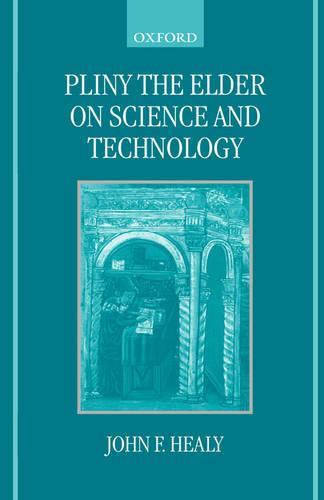Overview
The Elder Pliny's Natural History is essentially a work of reference providing a wide-ranging account of human mores and achievement in the arts and sciences in the first century AD. It influenced the content and character of subsequent technical literature, but errors in transmission of the manuscripts led to undeserved criticism from the time of Niccolo Leoniceno, the late fifteenth-century Italian humanist. Pliny's work is here re-examined for the first time since the 1920s. Modern experiments, simulating the techniques described by Pliny, and an in-depth study of his development of a technical language, confirm his unique contribution to our knowledge of science in early imperial Rome. Pliny does not, in general, understand the principles underlying the phenomena he observes but makes a significant input - especially in the fields of crystallography, chemistry, and physics as well as of the applied sciences - from which beginnings those scientific disciplines would evolve many centuries later. Ironically, Pliny's scientific curiosity led to his death in AD 79 while observing the eruption of Vesuvius at close quarters.
Full Product Details
Author: John F. Healy (Emeritus Professor of Classics, Emeritus Professor of Classics, University of London)
Publisher: Oxford University Press
Imprint: Oxford University Press
Dimensions:
Width: 14.40cm
, Height: 3.00cm
, Length: 22.40cm
Weight: 0.750kg
ISBN: 9780198146872
ISBN 10: 0198146876
Pages: 484
Publication Date: 24 February 2000
Audience:
Professional and scholarly
,
Professional & Vocational
Format: Hardback
Publisher's Status: Active
Availability: To order

Stock availability from the supplier is unknown. We will order it for you and ship this item to you once it is received by us.
Reviews
Healy has been faced with the problem of studying in its entirety a text of unusual length and complexity, by one of the most controversial authors of Roman literature: I therefore regard his effort as both seminal and monumental. Hermathena Healy successfully combines his expertise in the humanistic disciplines with a confident competence in the experimental sciences, both equally for the advantage of the reader, who will find the book a very useful, deep and detailed reference text to understand Pliny's account of science and technology better than ever before. Also, Healy must be credited both for the simplicity and clarity - neither at the expense of accuracy or completeness - in the treatment of the subject matter. Hermathena One can only praise Healy's courage in embarking on this study, and in trying to give Pliny due credit for his contributions to the natural sciences. Hermathena ... fills a long-standing gap ... Healy's book marks the first attempt to systematically scrutinize Pliny's description of materials, processes and phenomena which fall under the realm not only of chemistry, but also of physics and of the earth sciences. Hermathena This book is a significant contribution as a textbook and (essential) reference point for anyone interested in the history of science or Pliny's massive and often neglected work: for making Pliny accessible to scientists, and some of the science accessible to some classicists, Healy deserves much credit. JACT Review



